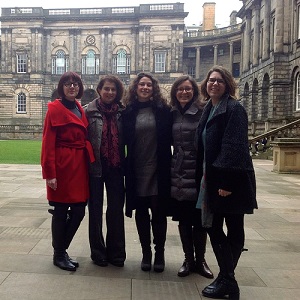Our Approach
The BeneLex project combines doctrinal and comparative analysis of sources of international law and of normative developments under multilateral environmental, human rights and corporate accountability processes.
This analysis is systematically enriched with real-world insights from the multilateral level through: participant observation in selected multilateral environmental negotiating sessions; organisation of international side-events at the margins of selected multilateral negotiations to gather feedback from negotiators from developing and developed countries, as well as NGOs, industry representatives and community-based organisations active at the multilateral level; and involvement of selected UN legal officers and non-governmental organisations that are active at the multilateral level in the project’s Board of Advisors.
In addition, to understand in a pragmatic and contextualised manner the role of benefit-sharing from the local to the global level, the project integrates empirical legal research and political sociology in the context of fieldwork in Malaysia, South Africa, Namibia, Argentina and the Greek island of Ikaria, in order to better understand the role of different transnational actors (non-governmental organisations, bilateral development partners, multinational enterprises) in shaping and using benefit-sharing in their environmental cooperation with governments and communities.
The project team will thus engage in a dialogue and share its outputs both with academics belonging to different epistemological communities (international law generalists, environmental lawyers, human rights lawyers, political scientists) and with policy and practice communities.


